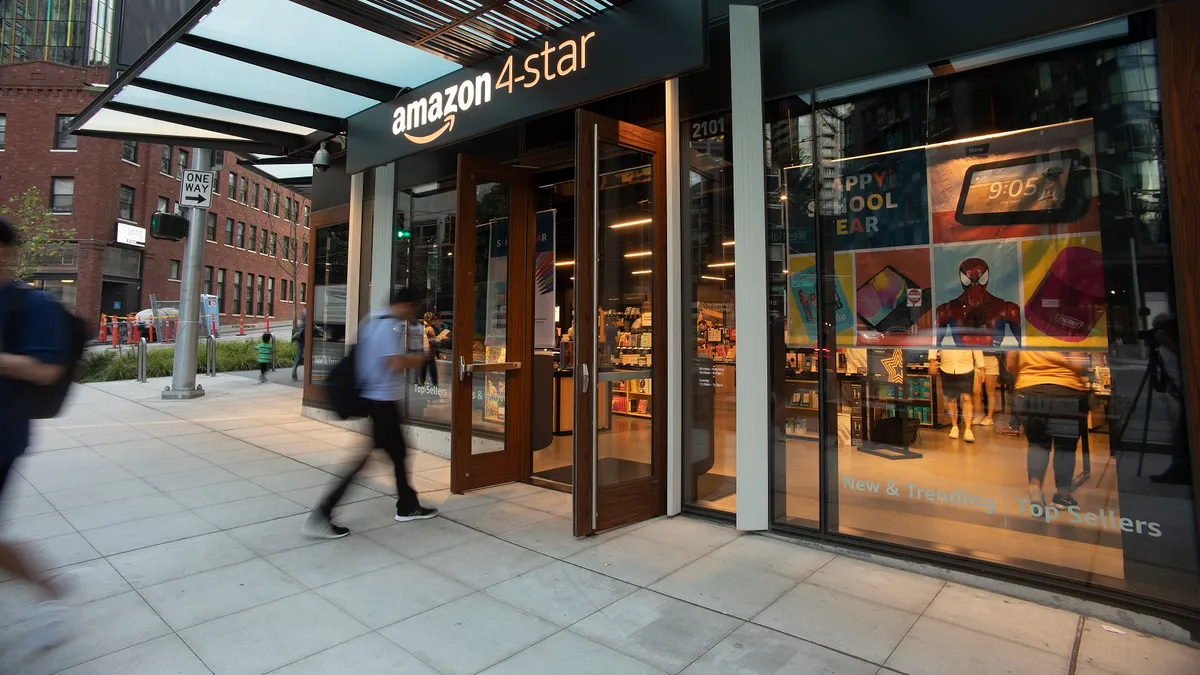Dive Brief:
-
Despite a relatively small physical footprint compared to other retailers, and amid ongoing concerns about fulfillment promptness this season, Amazon on Monday touted delivery alternatives "in more than 900 cities and towns across the U.S."
-
Amazon Hub pickup, which includes partnerships with other retailers, "is available for tens of millions of items sold on Amazon.com at no additional cost with the same fast shipping as home delivery." Customers can also select an Amazon 4-star or Amazon Books store as a delivery option, while Prime members get free same-day shipping with no minimum purchase required this year, according to a company press release.
-
With the effort to pull holiday demand forward moot as Thanksgiving approaches, Amazon in another press release on Monday said its Cyber Monday sale launches Saturday, Nov. 28 and will last through Nov. 30.
Dive Insight:
With Black Friday around the corner and consumers expected to do much of their holiday shopping away from stores, Amazon is sitting pretty.
The e-retailer has already had a major impact on the season. Its Prime Day event, along with other October sales, helped "jumpstart the holiday shopping season," according to a pre-Thanksgiving report from Deloitte. Overall in October, retail spending rose 3.5% year over year, driven by 6% increase during Oct. 11-17, which featured several holiday promotions, according to the report.
But with a dearth of stores compared to other retailers (578, with most of those within its Whole Foods grocery chain) and with time running out, Amazon now may be at something of a disadvantage. Most retailers are bracing for pandemic-induced disruption during the holiday period, including light store traffic or even lockdowns, as well as freight surcharges, small package delivery delays and capacity constraints, according to a Monday client note from Telsey Advisory Group.
While the pandemic has been lucrative for Amazon, it has not been immune to fulfillment delays in recent months. In response to such issues, retail giants Walmart, Target, Macy's and Best Buy, all with more physical locations in more cities, have honed their BOPIS operations, and that has already borne fruit, with those retailers noting online growth in recent quarters, and Target taking market share.
"Retailers are becoming more efficient at leveraging their stores to fulfill digital orders," Dana Telsey wrote in emailed comments, calling out Target as a "standout" in light of its 500% increase in drive-up sales in Q3. "The closer a retailer can get a customer to the store for digital fulfillment, the closer ... to store-level profitability. We continue to see an increased focus on ship from store, BOPIS, and curbside."















